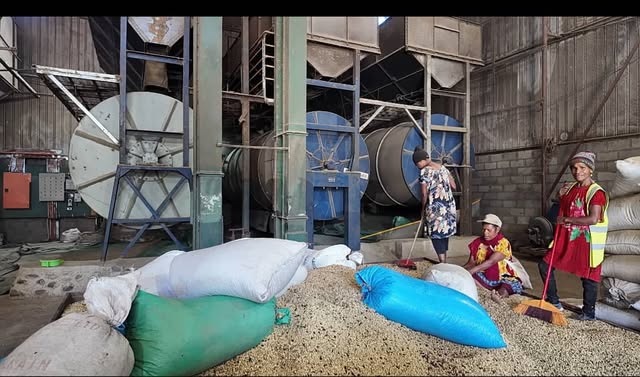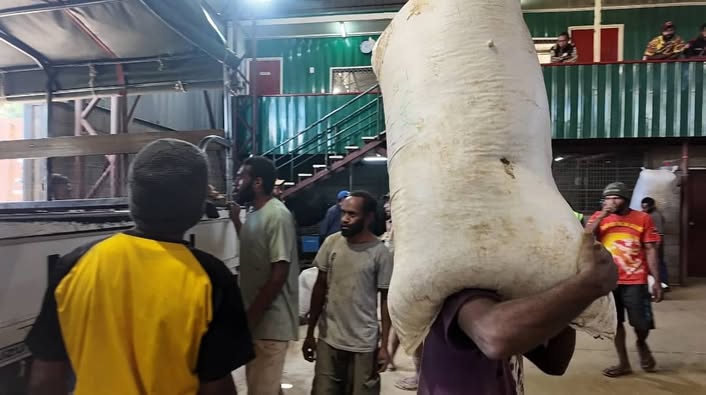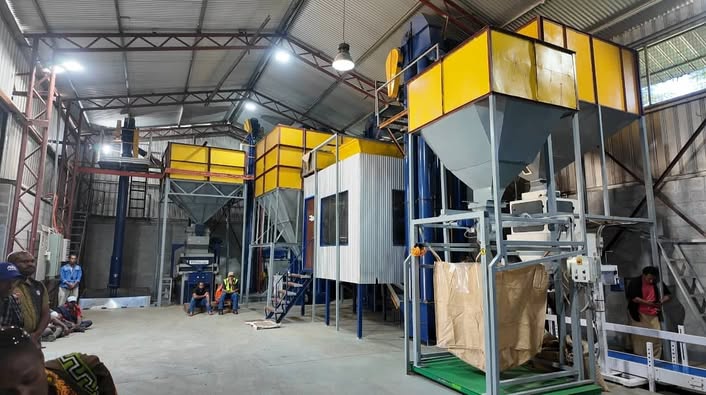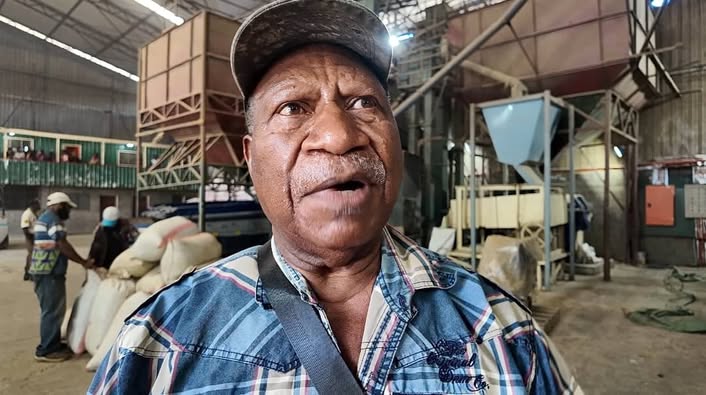Ken Dumudi used to work for the Works Department, and in 2012, he left the public service after years of feeling disillusioned and underutilized in the government department.
Funding difficulties and the lack of operational funds to do work meant he spent his time doing very little as a Works Department employee.
“I didn’t have enough work to do. I felt like I was stealing,” he said.
“So I resigned.”
Ken started a small construction company, hoping he would get small contracts.
But the environment was tough, and he had to sell off his equipment.
That’s when he and his family decided to start a coffee export company called Las Malo.
“In 2017, we started building this factory,” Ken says as he stands inside a fairly large building containing coffee processing machines.

“When we completed the building in 2018, the Coffee Industry Corporation (CIC) tested the machines. We processed the first 500 bags. They were satisfied, and they granted us an export license.”
Las Malo has been gradually expanding its operations and its capacity.
Since 2020, coffee exports have enabled the company to pay K13 million to the IRC, demonstrating just how PNG-owned agriculture businesses are helping to hold up the economy.
But it hasn’t been without its challenges.

All the coffee they buy, process, and export comes from smallholder farmers.
This tells of a 50-year decline in plantation production of coffee, where landowner disputes have prevented large-scale production.
“All our coffee comes from small farmers. We don’t have plantation production. We do not even own plantations,” Ken’s wife, Maureen, explains.
Plantations are being rehabilitated through CIC interventions, but it will take some time before they are fully operational.

In the meantime, a CIC grant has allowed Las Malo to purchase a color sorter.
The machine removes the need to sort coffee beans by hand and triples the efficiency.
The intervention is expected to significantly increase coffee production over the next 12 months.

